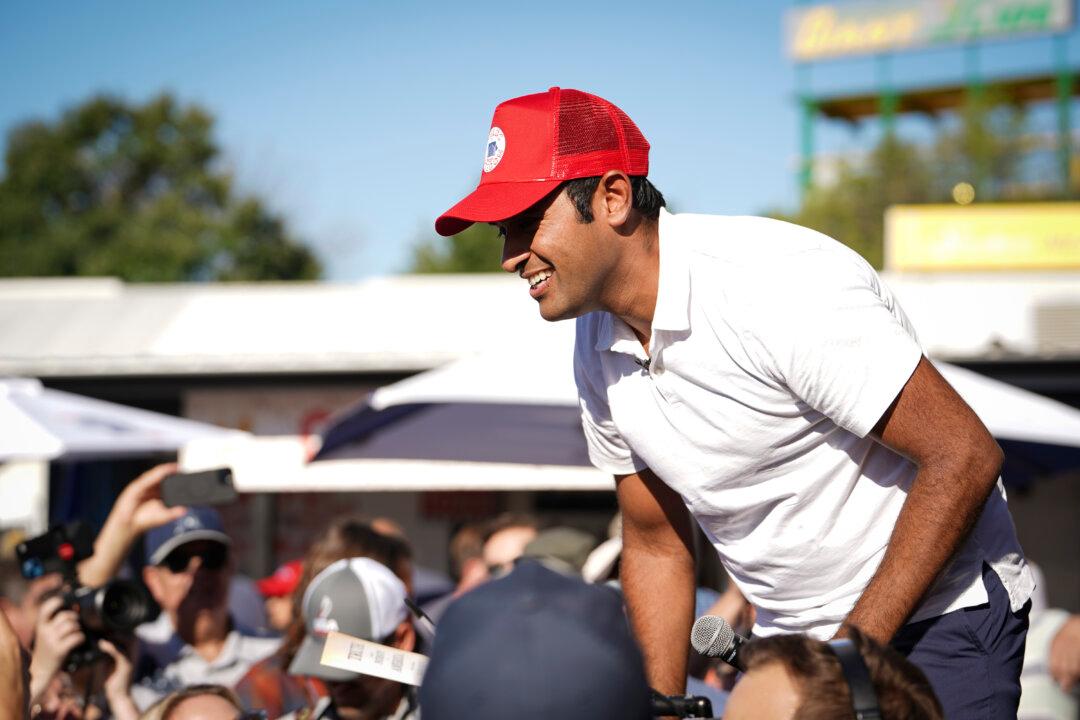Republican presidential candidate Vivek Ramaswamy doesn’t appreciate it when he’s likened to Andrew Yang.
“They’re trying to compare me to Andrew Yang[,] but the only real thing we actually have in common is that our parents are both Asian. The anti-racists continue to reveal their true colors,” Mr. Ramaswamy wrote on X, the site formerly known as Twitter, in response to his senior adviser’s post highlighting an article in The Atlantic that made the connection.





